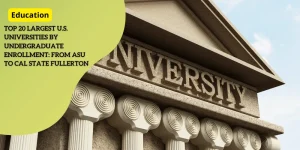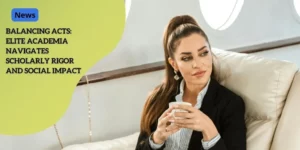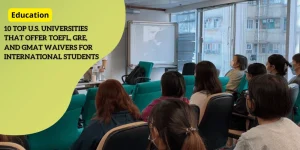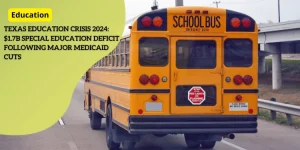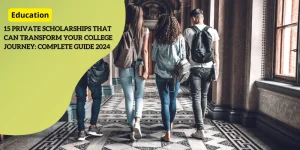Defending Democracy in the Classroom: How Book Banning Threatens Educational Freedom
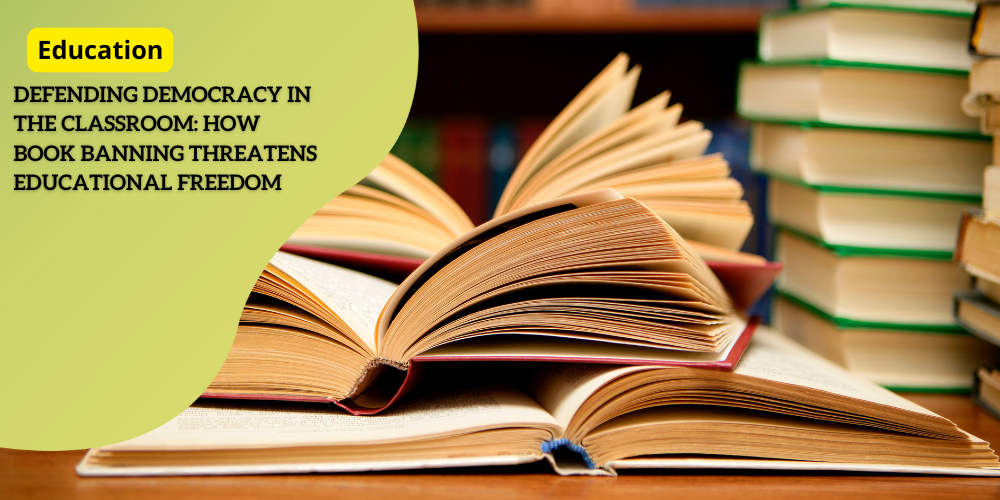
Anúncios
The Rising Tide of Book Banning in American Schools 

Book banning isn’t just a relic of the past.
Recent initiatives have brought it into the modern spotlight, particularly within the Department of Defense (DoD) schools that cater to roughly 67,000 students across 160 schools in seven states and 11 countries.
Anúncios
This alarming trend affects American children in these institutions, threatening the diverse education they are meant to receive.

Anúncios
The Banned Books 

Among the recently banned literary works are titles penned by notable authors such as Julianne Moore and Khaled Hosseini.
Julianne Moore’s Freckleface Strawberry, a seemingly innocent children’s book about a girl learning to accept her freckles, was surprisingly included in the list of banned books.
Likewise, Khaled Hosseini’s The Kite Runner, which explores friendship and societal divisions in Afghanistan, fell under scrutiny for its portrayal of classism, violence, and war—themes allegedly considered “inappropriate” for younger audiences.
Other significant titles include:
-
An Indigenous Peoples’ History of the United States by Roxanne Dunbar-Ortiz: This book offers a critical view of American history through the lens of Indigenous experiences, directly challenging the dominant historical narratives.
-
A People’s History of the United States by Howard Zinn: Another critical historical narrative that presents American history from the perspective of marginalized and working-class people.
-
Brave New World by Aldous Huxley: This dystopian novel examines themes of totalitarianism and social engineering.
-
No Truth Without Ruth by Kathleen Krull: An inspiring biography of Supreme Court Justice Ruth Bader Ginsburg, celebrating her fight for women’s rights.
Innocuous Yet Controversial 

What distinguishes many of these banned books is their focus on themes of self-acceptance, critical social issues, and the recounting of historical truths.
They provide varied perspectives meant to nurture critical thinking and self-awareness among students.
However, these same qualities paradoxically make them targets for banning by those who perceive them as threats to the traditional narratives they support.
The controversy surrounding these book bans often hinges on the argument that such literature could indoctrinate rather than educate. Yet, it’s vital to consider the broader implications of these bans.
Suppressing stories that deal with personal identity, social justice, or historical integrity isn’t about protecting children; rather, it reflects an unsettling drive to limit their exposure to varied realities, subsequently shaping their understanding in far narrower confines.
The ideas within the banned texts are crucial not just for their thematic richness but for their ability to challenge students to think critically about the world around them.
Efforts to limit access to these ideas are not isolated actions but are part of a broader agenda to control the narratives exposed to future generations.
It’s a considerable step back for educational freedom that holds significant implications for democracy itself.
As we delve deeper into this topic, the importance of maintaining diverse and inclusive educational content becomes increasingly clear.
Guaranteeing that students have access to a wide range of knowledge is crucial in promoting a well-informed and open-minded population. This educational freedom, threatened by the rising tide of book bans, is central to a democratic society.
Behind the Bans: Examining the Targeted Literature 
Themes in Banned Books
The recent wave of book bans illuminates a troubling trend aimed at suppressing themes of identity, social justice, and historical truth in education.
Many of the banned books dig deep into complex themes that encourage students to ask questions about the world around them and their place within it.
This act of banning seems driven by a fear of the discussions these books could spark—discussions that embrace a nuanced understanding of society and history.
The Power of Historical Perspectives 
Books like An Indigenous Peoples’ History of the United States by Roxanne Dunbar-Ortiz and A People’s History of the United States by Howard Zinn play a pivotal role.
These works offer a different lens through which to view American history—one that counters the traditional narratives.
They provide valuable insights into perspectives often marginalized in historical discourse, highlighting the experiences and contributions of Indigenous populations, working-class individuals, and minority groups.
Through these narratives, students are encouraged to develop critical thinking skills, an important component of a well-rounded education.
By exploring the less-told stories of oppression and resilience, these books challenge readers to question the status quo and reflect on the societal structures that exist today.
It’s through this process that students can form well-informed, diverse opinions and engage meaningfully in democratic discourse.
Encouraging Critical Thinking 

The act of banning these books under the pretext of them being controversial or inappropriate masks a more insidious agenda—the fear of critical thinking.
Titles like Khaled Hosseini’s The Kite Runner offer deep insights into cultural dynamics, classism, and the personal impacts of historical events.
Exploring these themes through well-crafted narratives imparts the value of empathy, understanding, and global awareness.
Undoubtedly, this targeted suppression raises alarms about the future of democratic engagement if voices that question accepted history are silenced.
Yet, the value of these works lies precisely in their ability to incite curiosity and critical analysis among students, empowering them to become informed citizens capable of shaping a more inclusive, aware society.
Reflecting on the implications of this trend, it’s vital to recognize how censoring knowledge constrains our ability to move forward.
As we delve deeper into the motivations behind these bans, understanding the political agenda becomes crucial.
The Political Agenda Behind Educational Censorship 
The Connection Between Book Banning and Ultraconservative Political Movements
The recent trend of book banning in American schools, particularly under the Department of Defense’s jurisdiction, is undeniably linked to a broader political agenda driven by ultraconservative movements.
This agenda aims to control educational content and perpetuate a singular, often sanitized, view of history and society.
The movement to ban certain books from school curricula is not happening in isolation.
It’s intrinsically connected to the rise of ultraconservative and libertarian ideologies that seek to mold young minds in a way that aligns with their vision of social order.
By targeting books that discuss themes of identity, social justice, and historical truth, these groups aim to suppress narratives that challenge their preferred version of American history.
Notable works, such as An Indigenous Peoples’ History of the United States by Roxanne Dunbar-Ortiz and A People’s History of the United States by Howard Zinn, have become prime targets.
These books offer perspectives that run counter to the mainstream historical narratives, presenting viewpoints that include the experiences and struggles of marginalized groups.
The fear of these groups appears to be rooted in the potential for such literature to inspire critical thinking and empathy—elements that could disrupt the status quo.
How Censorship Serves to Control Historical Narratives and Shape Future Perspectives 

Censorship in education is a strategic tool used to manage how history and societal values are perceived by the next generation. B
y restricting access to diverse viewpoints, those in power can ensure that only their authorized version of events is propagated.
This control stifles the development of a well-rounded, critically thinking populace.
Consider the banning of Khaled Hosseini’s The Kite Runner, which addresses difficult topics such as classism and violence.
The removal of such a book prevents students from engaging with complex, often uncomfortable truths about the world.
It also denies them the opportunity to develop critical thinking skills and empathy—qualities essential for navigating and understanding a diverse society.
Parallels with Orwell’s Concept of Controlling the Past to Control the Future 
The censorship of educational content draws disturbing parallels with George Orwell’s concept in 1984. Orwell asserted, “Who controls the past controls the future; who controls the present controls the past.”
This idea posits that by shaping public perception and knowledge of historical events, those in power can influence future attitudes and behaviors.
The systematic banning of books in American schools is reminiscent of Orwell’s warning 
It’s an effort to erase or alter uncomfortable aspects of history, sanitizing it to fit a narrative that benefits those currently in power.
The goal isn’t merely to protect students but to limit their understanding of the world to a narrow, controlled perspective.
This manipulation of historical narratives is a form of ideological dominance, steering the cultural and intellectual direction of society 
In this way, the stakes are not just about which books are on the shelves—they’re about who gets to write the history and, by extension, shape the future.
Defending educational freedom is crucial to safeguarding democracy itself 
Keeping a wide range of voices and perspectives within our educational system is not just a matter of fairness but a defense against authoritarianism and intellectual oppression.
Continuing to explore the importance of protecting democracy through educational freedom reveals the underlying strategies necessary to resist such censorship and maintain a vibrant, open society.
Global Implications and Historical Parallels 
Germany’s Confrontation with Historical Truths
Germany stands as a prominent example of a nation confronting its historical shadows head-on. Following the horrors of the Nazi regime, Germany has embedded a rigorous remembrance of its past.
The nation actively educates its citizens about the Holocaust and the war atrocities committed.
This acknowledgment is crucial for ensuring that such events do not repeat themselves and is a profound lesson in moral responsibility.
The German approach starkly contrasts with trends observed in the U.S., where bans on books recounting uncomfortable historical truths persist, reflecting a hesitance to face certain aspects of its own history.
The Global Right-Wing Trend
Around the world, a pattern echoes with movements aiming to restrict educational content to fit conservative ideologies, resonating with the trends seen in the United States 
This wave is not confined to one nation; it is part of a global effort by ultraconservative groups to mold educational narratives.
Such movements portray themselves as protectors of morality and traditional values, yet ironically, they engage in a subtle form of censorship 
Vital discussions about race, class, and history become casualties in this ideological struggle, depriving students of a comprehensive worldview.
Learning from History’s Lessons
History presents us with various cautionary tales about the dangers of restricting knowledge.
Events from Nazi Germany to more recent examples in authoritarian regimes highlight the peril of allowing educational freedom to dwindle 
When books that challenge the status quo are banned, society risks cultivating generations swayed by one-sided perspectives.
The struggle is not just about resisting ideological dominance but about nurturing an informed citizenry capable of critical thought and vibrant discourse.
As we delve into how these trends jeopardize educational freedom and democratic values, it becomes evident that our collective response is crucial.
Just as lessons from the past teach us the perils of censorship, so too must we fortify our resolve to ensure access to diverse perspectives in the learning environment.
Without veering into specifics of the next topic, it’s important to stay alert and take proactive measures in this ongoing battle for educational integrity.
Defending Democracy Through Educational Freedom 

The Importance of Protecting Diverse Perspectives in Education
Educational freedom is more than a right; it is the foundation of a healthy democracy 
By exposing students to a variety of perspectives, educational institutions can encourage critical thinking, empathy, and a deeper understanding of the world around them.
Books that explore themes of identity, social justice, and historical truth provide a lens through which students can scrutinize and question the status quo. This not only enriches their personal growth but also equips them to participate more actively in democratic society.
Censoring these perspectives, especially in an educational setting, narrows the scope of knowledge and stifles intellectual growth 
It denies students the opportunity to learn from multiple viewpoints and to engage in meaningful, sometimes challenging, dialogue about their world.
The diversity of thought is pivotal to understanding complex issues and fostering innovation and progress. Without it, education becomes mere indoctrination rather than a tool for empowerment.
How Restricting Access to Information Threatens Democratic Values
The act of banning books is not only a limit on free speech but also a constraint on the intellectual freedoms that form the bedrock of democratic values 
When certain books are banned, it indicates an effort to control the narrative that shapes young minds, ensuring only a narrow, sanctioned version of history and culture is taught.
This type of censorship breeds ignorance and intolerance, as students are prevented from encountering ideas that challenge their preconceptions or expand their horizons.
The implications are profound. The ability to question, to criticize, and to learn from past mistakes is crucial to the functioning of a democracy.
By restricting access to information, we risk breeding a generation that is less informed, less empathetic, and less capable of upholding democratic principles in the face of authoritarian ideologies. Therefore, the importance of defending educational freedom cannot be overstated.
| Strategy | Description |
|---|---|
 Advocacy and Awareness Advocacy and Awareness |
Raise awareness about book banning and its effects on democracy through community discussions, media campaigns, and public forums. |
 Support Organizations Support Organizations |
Support groups like the U.S. Library Association and the National Coalition Opposing Censorship by donating or volunteering. |
 Engage in School Policies Engage in School Policies |
Attend school board meetings and advocate for inclusive curriculums to ensure diverse perspectives are represented. |
 Promote Diverse Reading Promote Diverse Reading |
Encourage reading through book clubs, public readings, and by sharing banned books to foster critical thinking. |
 Legal Action Legal Action |
Collaborate with civil liberties organizations to challenge unconstitutional book bans and set legal precedents for educational freedom. |
Ultimately, defending democracy through educational freedom is about ensuring that future generations can engage with a wide array of ideas and experiences 
It requires vigilance, dedication, and a collective commitment to intellectual liberty.
The fight for educational freedom is ongoing. Just as past battles for civil rights and liberties have shaped our world, the fight against book bans today will influence the education and democratic engagement of tomorrow.




 Strategies for Resisting Educational Censorship
Strategies for Resisting Educational Censorship


